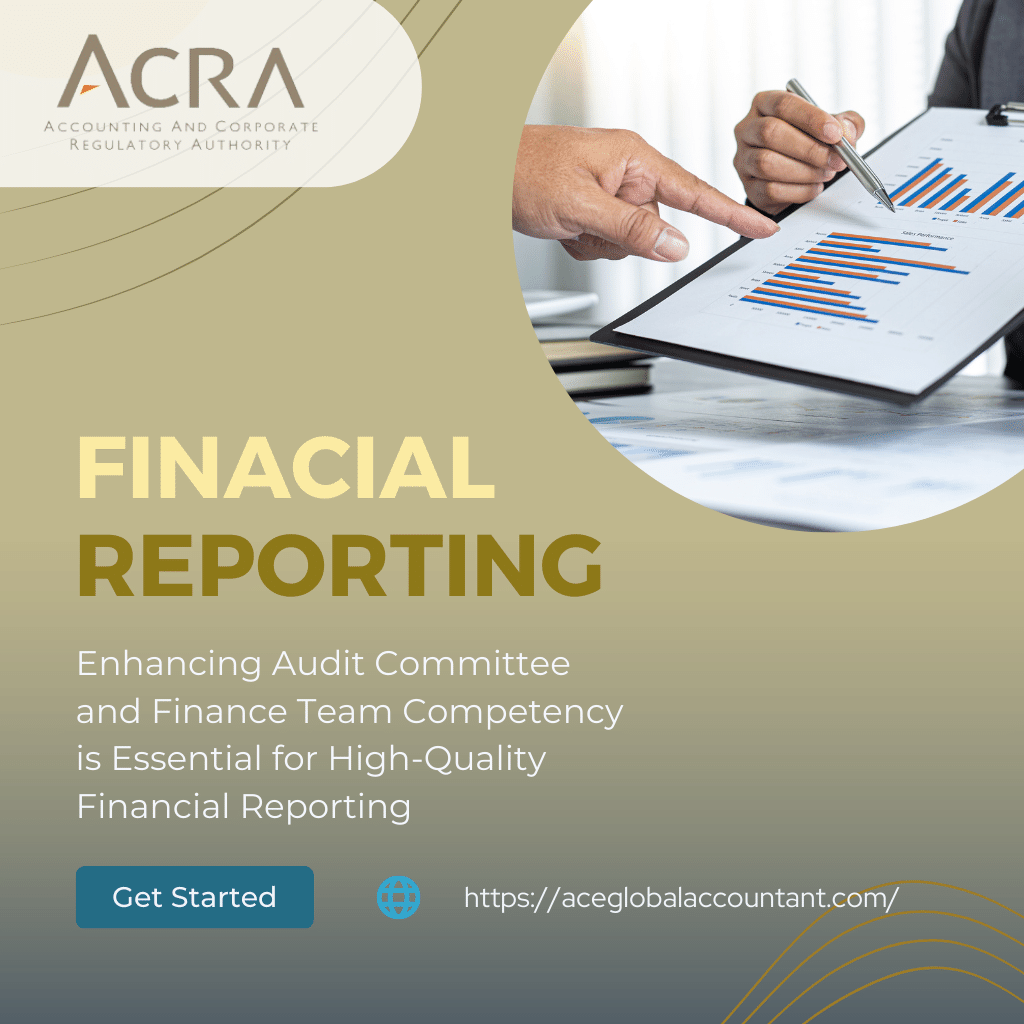 0
0
SHOPPING CART

The Accounting and Corporate Regulatory Authority (ACRA) has issued its fourth Financial Reporting Surveillance Programme (FRSP) report, which noted that the knowledge gap and insufficient due diligence remain the main root causes contributing to material non-compliances with accounting standards. Another root cause was the lack of action taken on issues raised by auditors.
Key Findings from the FRSP review
The 23 material non-compliances were identified in areas such as business valuations, impairment assessments, presentation of cash flow statements, consolidation, and equity accounting. After engagements with the companies, ACRA observed that the material non-compliances were due to the following factors:
a. Knowledge gap within the finance teams, Chief Financial Officers (CFOs) and Audit Committees (ACs) resulting in the incorrect application of accounting standards;
b. Insufficient due diligence by the finance teams, CFOs and ACs, on transactions that were neither complex nor required judgement; and
c. Lack of action taken on issues raised by auditors. This includes failure to act upon the areas qualified or disclaimed by the statutory auditors and accepting modified audit reports in consecutive years instead of taking the appropriate steps to rectify the issues and resolve non-compliances with the accounting standards.
4. The Framework consists of four pillars:
a. One director was ordered to pay a fine for failing to comply with accounting standards, while four other directors were issued warnings.
b. Five listed companies had their past years’ FS re-stated and re-audited; and
c. Three listed companies made additional disclosures or stated the comparatives differently in their subsequent filings with the regulatory authorities.
5. Most material non-compliances affected the company’s bottom line or key financial measure(s). The adjustments to consolidated pre-tax profits or losses and net assets of the companies ranged from 13% to 576%, and 3% to 32% respectively; some operating cash flows changed from positive to negative, or vice versa. Such misstatements could impact the decision-making of users of these FS.
Strengthening Financial Reporting Competency
6. There is always room for improvement in building a competent financial reporting team. With evolving business models and more complex transactions, it is critical for preparers to understand the substance of the transactions and the principles behind the accounting standards in order to apply the relevant accounting standards to the transactions correctly. The companies should invest in training to equip and upskill the finance teams, including CFOs and ACs to bridge any competency gaps. The Board can support product managers by giving them access to experts and consultants for advice on more complex matters. This way, product managers can get the help they need to make informed decisions.
7. Statutory auditors can help ensure financial reporting is accurate and transparent. They can assist the ACs, CFOs and finance teams by highlighting potential accounting or auditing issues early on. In such situations, the ACs should guide the CFOs and finance teams to resolve the statutory auditor’s concerns to avoid any modified audit reports being issued. The Board should also apply rigour in reviewing and approving the FS to ensure that it provides a true and fair view of the financial position and performance of the company.
8. As companies increase their focus on sustainability, they should also be mindful of the accounting implications of climate change. Accountants should review the financial statements and engage with the statutory auditor, taking into consideration key accounting and auditing considerations.
9. The Financial Reporting Surveillance Programme (FRSP) is a key initiative by ACRA to strengthen the financial reporting value chain and maintain the reliability of financial information for investors and other stakeholders.
10. The FRSP Fourth Report 2022 is available at here (854KB, PDF).
To learn more about Singapore incorporation, economy, banking, etc., feel free to call/WhatsApp us at +65 90612851 or email us at aceglobalacct@gmail.com. Alternatively, you may leave us a reply using our contact form below.
Keep in touch to receive the latest listing, news updates and special offers delivered directly to your inbox.
